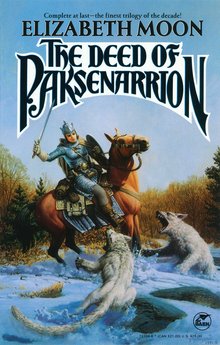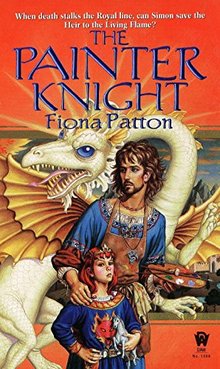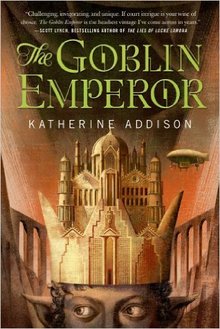I Need a Job
 Have you noticed how some characters come with their own jobs, and some need to find one? Some of them, like Sherlock Holmes, even invent their own jobs. There was no such thing as a “consulting detective” until Holmes became one. The job is the character, and the character is the job.
Have you noticed how some characters come with their own jobs, and some need to find one? Some of them, like Sherlock Holmes, even invent their own jobs. There was no such thing as a “consulting detective” until Holmes became one. The job is the character, and the character is the job.
Or, to put it another way, sometimes the type of story you want to tell dictates what kind of job your protagonist needs.
And, sometimes, the type of job your character has dictates the story you’re going to tell about them. There are quite a few jobs that can bring a story with them, at least if you’re a genre writer. Detective. Queen. Knight. Wizard. Thief. Soldier. Then there are those whose story potential doesn’t seem quite so obvious. Servant. Miller. Potter. Cook. Farmer.
 Certainly you’d tell a different type of story if your character was a queen, or a cook, or a knight, or a farmer – though sometimes a story tells us how a character changes from one job to another. Farmers become knights, as Paksenarrion does in Elizabeth Moon’s novels. Paks set out on her journey intentionally, however, unlike Simon in Fiona Patton’s The Painter Knight, who rises to the nobility almost despite himself. (I didn’t say “spoiler alert” because, you know, there’s the title.)
Certainly you’d tell a different type of story if your character was a queen, or a cook, or a knight, or a farmer – though sometimes a story tells us how a character changes from one job to another. Farmers become knights, as Paksenarrion does in Elizabeth Moon’s novels. Paks set out on her journey intentionally, however, unlike Simon in Fiona Patton’s The Painter Knight, who rises to the nobility almost despite himself. (I didn’t say “spoiler alert” because, you know, there’s the title.)
As for queens, rising from relative obscurity to the throne has to be one of the most popular plotlines in existence. Sometimes the journey is the story, as in Dumas’ The Man in the Iron Mask, and sometimes we see the effect of “greatness thrust upon them” which Katherine Addison shows us in The Goblin Emperor.
Speaking of Alexandre Dumas, let’s not forget The Count of Monte Cristo, the ultimate rags-to-riches story, where Edmund Dantes evolves from sailor and prisoner to become one of the most powerful men of his society.
 Nowhere is a character’s job more significant than in a series. In an open-ended series, where there is a more-or-less stand alone story in each novel, the main character(s) simply must have a job that allows her(them) to have continuing adventures. Detective, soldier, spy – all of these do well. A knight, or the equivalent, might work, but a queen – or king – rarely does.
Nowhere is a character’s job more significant than in a series. In an open-ended series, where there is a more-or-less stand alone story in each novel, the main character(s) simply must have a job that allows her(them) to have continuing adventures. Detective, soldier, spy – all of these do well. A knight, or the equivalent, might work, but a queen – or king – rarely does.
When I began writing my Dhulyn and Parno novels, I wanted to write my own version of Fritz Leiber’s Fafhrd and Grey Mouser stories. Because I’m a woman, I made Dhulyn a female character, but I still felt that I would be copying Leiber too closely if I made them thieves, so I made them mercenaries instead. As with thieves, the variety and mobility of a mercenary’s job lends itself to storytelling. Often the variety is brought on by other peoples’ jobs, however, so Dhulyn and Parno get involved with, actors, priests, witches, serial killers, and yes, even kings.
By the way, it has nothing to do with their jobs, but I also wanted to write about a female/male pairing where there was no sexual tension. I get so tired of the “will they/won’t they” plot device.
One last thing. Mobility in a character’s job isn’t in and of itself necessary, even in a series. Tanya Huff’s thief, Terazin, never leaves her home town unless she’s forced to, while Magdelene, the world’s most powerful wizard, is so lazy she doesn’t even like to leave her house.
Come to think of it, “too lazy to leave the house” appears in my job description.
Violette Malan is the author of the Dhulyn and Parno series of sword and sorcery adventures (now available in omnibus editions), as well as the Mirror Lands series of primary world fantasies. As VM Escalada, she is writing the upcoming Halls of Law series. Find her on Facebook and follow her on Twitter @VioletteMalan..
Heroes do things. They don’t wait for things to happen. They don’t expect others to fix things for them. They do the work required.
I think you nailed a lot of the philosophy of why a job is important and defining. I agree that some roles bring with them a story but, as you point out, every job has a certain romance to it and a story. Servant, miller, potter, cook, farmer, all have a nobility to their work just as a rat catcher. Perhaps the only difference is the prestige. A job is a noble thing and people need them.
I suppose that is why heroic fiction appeals to me most. I don’t respect people who sit on their behinds when evil raises its ugly head. I respect people who struggle and try and WORK. It is why I hold distain for socialism. Why work for someone who doesn’t? Charity is from the heart,not forced by government pandering. Charity of your earnings makes you feel good about your deed, money you are forced to pay robs you of that feeling. I believe that a job brings respect and socialism robs you of it. You can’t fake it, you have to earn it to make it count.
Interesting post.
@ Wild Ape: I feel exactly the way you do about heroic fiction — though we may not be on the same page vis a vis socialism, as I do believe you can act heroically within any system. I do feel that genre fiction, and fantasy in particular, is one of the last places a protagonist can act heroically in the way you’re describing, that is, without irony.
My wife loves your books by the way. You caught my attention when you talked about Dhulyn and Parno being like Fafrd and the Grey Mouser. I’m going to have to search through her books to see if she has one or get it on my Kindle.
When I was younger this was the sort of thing that my wife and I would discuss and have nerdy fights about. Girls can’t write heroic fiction I told her smuggly as I sat down to read an Andre Norton Witch World novel. I think you can see where this conversation went. So I have a lot of stuff on my shelf now and I stand corrected. Tanya Huff, Anne MacCaffery, Katherine Kurtz, and tons of others. They sit beside Robert E Howard and other favorites.
The Heroe’s Journey demands that the hero bring back something of value. I think the idea of doing something worthwhile, like a job, is imbedded in our psyche. Mind you, I’m just a dumb ape who reads books and not a professor or scientist, but that makes sense to me. I just think you have a good writers eye to spot things that are in front of us that we didn’t see. A job is an important piece of characterization. How they react and how they deal with the day to day IS a story.
Some stories that are fun are the heroes that don’t like their jobs. Joe Abercrombie’s Glotka comes to mind. He is bitter, twisted, and seething with jealousy but he is fascinating. I completely agree that a hero can be heroic in any setting. Tyrion Lannister is another that comes to mind. Both of these characters are memorable and favorites. They are a long way from Conan.
The subject of jobs was one of the more troublesome things when I started thinking about doing stories set in neolithic societies. “Tribesman” is not much of a job description when everyone is “tribesman” and “tribeswoman”.
It really helps a lot to think about the normal social role characters have in their society. A lot of them are kind of floating in a vacuum. Like Mister Baggins Sn. and Mister Baggins Jr.
Martin—someone had to do the flint knapping. Someone had to set the fire. I don’t think there were any slackers back then or they starved. Men were expected to be hunters at least.
I’m a sucker for the fantasy in which the kitchen drudge or the tackmakers helper gains skill, knowledge, perhaps discovers a hidden connection to fate or destiny. Sure it’s a cliche, but for me, a welcome one. In these cases, the job is only the starting point, though in the better ones, some knowledge or ability in the initial position may later come into play.
Martin and Ape,
The anthropologists I know like to observe that people in hunter/gatherer societies whose ecosystems are in stable health work about 4 hours a day. They do lots of things, but they spend less of their daily time on food, shelter, and medicine than does a person in a modern, specialized economy working an 8-hour day whose income is only enough to cover food, shelter, and medicine.
I don’t think there were slackers in the sense of able-bodied people who could have contributed to a tribe’s survival but threw themselves on the patience and resources of others. But by the standards of the most Type-A people I know, or in the work environment of an Amazon warehouse, a person who worked four hours a day might look like a slacker.
@Sarah—That is a lot of free time.
Even medieval farmers could have it pretty cozy. There were a few weeks of working all day with sowing and a few weeks working all day on harvesting, but during the rest of the year the workload was a lot lower.
Living in an area abundant with fruits and animals and pleasant weather is a great life. Unless you get sick or injured, then it just sucks to be you. It’s pleasant when it works, but with very little security if something goes wrong.
Civilization is more stable, but at a lower level.
You know, my grandfather when he told me about the “good old days” and the Great Depression and it was never a happy story. I’m not certain if we all reverted back to the Stone or Middle Ages again that it would be better than what we have now. Pappy scared the hell out of me with those stories in ways that Steven King never could.
@ Wild Ape: Please thank your wife for me, and let me know what you think when you try my books for yourself.
As some of the later comments point out, our basic survival used to depend on our doing our jobs, so maybe that’s why we feel it’s ingrained.
As for writer’s spotting things others don’t see, Alexander Pope put it this way: “True wit is nature to advantage dressed/ What oft was thought, but ne’er so well expressed.” By “wit” he means the ability to see similarities between things that are not obviously similar.
Characters who don’t like their jobs are often the protagonists of rags-to-riches stories, though it can also be a device for complicating and deepening the characterization.
@ Martin: Oddly, I also thought about the Bagginses when I was writing this, and I realized that they, along with Merry and Pippin, don’t actually have jobs, per se. I think they must have been the Hobbit equivalent of ‘gentlemen.’ Makes sense when you consider the time/society that Tolkien was writing in.
@ R.K. Robinson: There’s that rags-to-riches plot again. As you say, it’s a cliché, but it touches practically everyone. And I agree that the job is almost always the starting point.
@ Sarah: there used to be a book in vogue many years ago called “Homo Ludens” or “Man the Player” which examined the difference between work, a job, and play. Unfortunately, I’ve forgotten which was defined as “work” and which as “job”, but the basic idea was that there’s a difference between an activity that you identify with, and feel accomplishes something, and one which is repetitive and goes no discernible place. The author suggested that the former was preferred to the latter, and that humans also require “play”
@ Martin: I’d like to point out that there were no medieval farmers in North America, and that for them “the rest of the year” was a much shorter period than it is for us — or at least for me, living in Canada.
As it is, I live in farm country, and I have a 1600 sq/ft vegetable garden, and trust me, between the sowing and the harvesting, you’ve got the weeding, the watering, and the keeping off the animals. Not to mention the preserving as each veggy/fruit comes ripe, which they don’t all do at the same time.
Many medieval farmers would also have had livestock, which require care all year round.
That’s an impressive amount of vegetable garden!
I’ve taken up canning this year, and as much as I like it, it is pretty time-consuming. I took my kids to a pick-your-own place, and they didn’t feel satisfied that they’d had the fruit-picking experience until we had accumulated 37 pounds of peaches.
For me, one key distinguishing feature between work and drudgery is a sense of futility. I hate cooking dinner, because in an hour all that work is gone, and tomorrow I’ll just have to do it again. I like canning because at the end I have a six-month to one-year supply of something I can enjoy a little bit of every day.